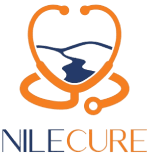
ICSI (Intracytoplasmic Sperm Injection) is a specialized technique used in conjunction with IVF (In Vitro Fertilization) to assist with fertilization when there are issues with sperm quality or quantity. Here’s an overview of ICSI within the context of IVF:
Process:
1. Ovarian Stimulation: The woman undergoes ovarian stimulation with fertility medications to produce multiple eggs.
2. Egg Retrieval: Eggs are retrieved from the woman’s ovaries under ultrasound guidance during a minor surgical procedure.
3. Sperm Collection: A sperm sample is collected from the male partner or a sperm donor.
4. Preparation of Sperm:The sperm sample undergoes preparation in the laboratory to isolate motile and morphologically normal sperm.
5. Injection of Sperm: A single sperm is selected and injected directly into the cytoplasm of each mature egg retrieved during the IVF process.
6. Embryo Culture: After injection, the fertilized eggs (embryos) are cultured in the laboratory for several days.
7. Embryo Transfer: One or more viable embryos are transferred to the woman’s uterus for implantation.
Indications for ICSI:
ICSI is typically recommended when there are factors affecting sperm quality or quantity, such as:
– Low sperm count (oligospermia)
– Poor sperm motility (asthenospermia)
– Abnormal sperm morphology (teratospermia)
– Previous failed fertilization attempts with conventional IVF
– Presence of antisperm antibodies
– Surgical sperm retrieval (TESE, MESA) for obstructive azoospermia or other conditions
Benefits of ICSI:
– Overcomes male factor infertility by directly injecting a sperm into the egg, bypassing natural barriers to fertilization.
– Allows fertilization even with low sperm count or poor sperm motility.
– Increases the chances of successful fertilization and embryo development in cases of severe male factor infertility.
Considerations:
– ICSI carries a slightly higher risk of certain complications compared to conventional IVF, such as damage to the egg or genetic abnormalities in offspring.
– The need for ICSI should be carefully evaluated by a fertility specialist based on the specific circumstances of each couple.
Conclusion:
ICSI is an effective assisted reproductive technology that can help couples overcome male factor infertility and improve the chances of successful fertilization and pregnancy during the IVF process. It is essential for couples to discuss the potential risks and benefits of ICSI with their fertility specialist to make informed decisions about their fertility treatment options.

